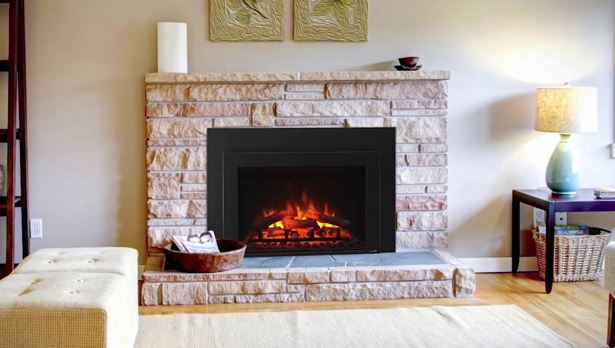Fireplaces have long been a staple in homes, providing warmth and comfort during the colder months. While traditional wood-burning fireplaces are charming, they can be quite inefficient and require constant maintenance. This led to the rise of gas fireplaces, which offer convenience and ease of use. But how efficient are these modern alternatives?
In this article, we will delve into the efficiency of gas fireplaces and help you determine if they are a practical choice for your home. So let’s dive in and learn more about this popular heating option.
For more on gas fireplaces, you can read more in this article.
Contents
The efficiency of gas fireplaces
Gas fireplaces use natural gas or propane to fuel the flames and create heat. They are designed to mimic the look of a traditional wood-burning fireplace, but with added convenience and efficiency. So just how efficient are they?
Efficiency ratings
When it comes to measuring the efficiency of gas fireplaces, there are two main furnace efficiency ratings to consider: annual fuel utilization efficiency (AFUE) and steady state efficiency.
AFUE measures how much heat is produced by the fireplace compared to the amount of gas it consumes. This rating is typically higher for gas fireplaces, with most models ranging from 70-85%.
Steady state efficiency, on the other hand, measures how efficiently a fireplace can maintain a consistent temperature over an extended period of time. This rating is usually around 75-80% for gas fireplaces, which is significantly higher than wood-burning fireplaces.
Benefits of gas fireplaces
Aside from their high efficiency ratings, gas fireplaces offer several other benefits that make them a popular choice among homeowners. These include:
- Convenience: With a simple switch or remote control, you can easily turn on and off your gas fireplace. No more hauling wood or dealing with ashes.
- Low maintenance: Gas fireplaces require minimal maintenance compared to traditional fireplaces. They don’t produce any ash or soot, and there is no need for chimney cleaning.
- Clean burning: Gas fireplaces burn cleanly without producing harmful pollutants such as carbon monoxide and particulate matter.
- Cost savings: Gas fireplaces can help reduce your heating costs, as they are more efficient at producing heat compared to wood-burning fireplaces.
Factors affecting efficiency
While gas fireplaces offer many benefits and have high efficiency ratings, there are some factors that can affect their overall efficiency. These include:
- Installation: Proper installation is crucial for ensuring the efficiency of a gas fireplace. It should be installed by a professional to ensure safety and optimal performance.
- Insulation: The level of insulation in your home can affect how efficiently your gas fireplace heats your space. A well-insulated home will retain more heat, making your fireplace more effective.
- Maintenance: Like any other heating system, regular maintenance is essential for keeping your gas fireplace running efficiently. Make sure to schedule annual inspections and cleanings.
Gas fireplaces can be extremely efficient
Gas fireplaces are a highly efficient and convenient choice for heating your home. They offer several benefits over traditional wood-burning fireplaces, making them a popular option among homeowners.
However, proper installation, insulation, and maintenance are crucial for ensuring optimal efficiency. So if you’re considering a gas fireplace for your home, make sure to do your research and consult with a professional HVAC technician to find the best option for your needs.



